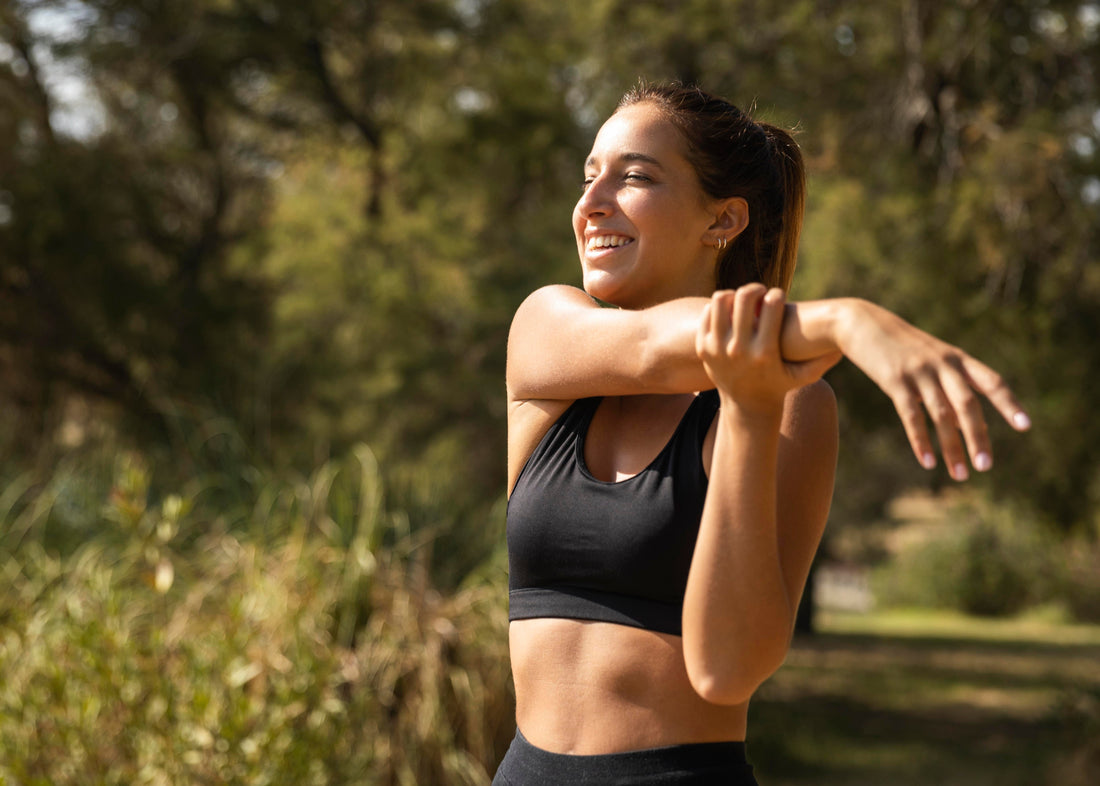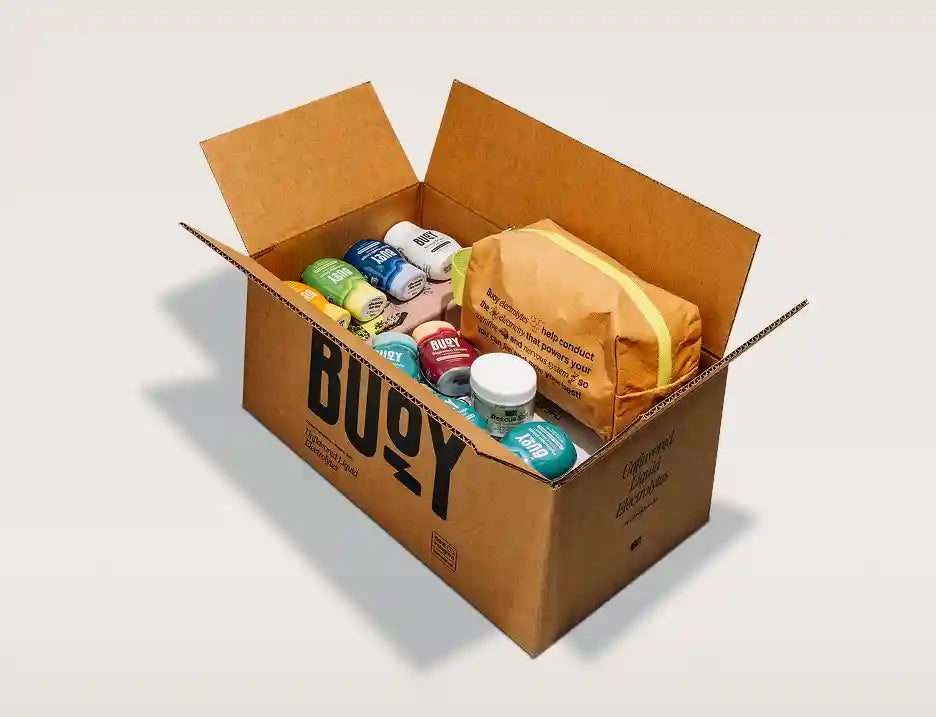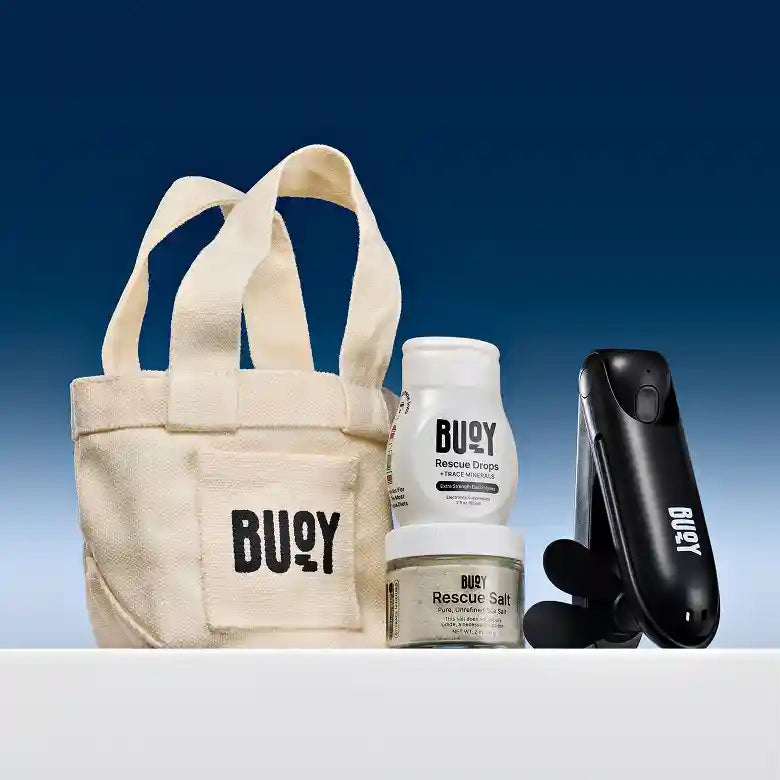
Balancing Exercise and Immunity for Optimal Health
Share
Staying active is a cornerstone of a healthy lifestyle, but too much of a good thing can sometimes backfire. While exercise supports the immune system in countless ways, going too hard without proper recovery can weaken your body’s defences. At Buoy, we've spent years looking into how hydration, electrolyte balance, and smart exercise habits work together to support immunity - especially in our busy, always-on lives.
Essential Takeaways
- Moderate, consistent exercise strengthens the immune system by improving circulation, lowering stress, and reducing inflammation.
- Overtraining without rest can suppress immune function, increasing susceptibility to illness.
- Supporting your hydration and electrolyte balance with Buoy can help you recover better and maintain immune resilience.
Let’s break down what the research says, how your immune system responds to different types of activity, and the small adjustments that can make a big difference.
- Understanding the Immune System's Relationship with Exercise
- Signs You Might Be Overtraining
- The Role of Electrolytes in Recovery and Immune Health
- How to Strike the Right Balance
- Exercise, Immunity, and Age
- Special Considerations: Immunocompromised or Chronically Ill Individuals
- Final Thoughts: A Holistic Approach to Immune Support
Understanding the Immune System's Relationship with Exercise
The immune system isn't a switch that flips on or off - it's a complex network constantly adjusting to stressors. And yes, exercise is a stressor. In the right doses, it trains your body to respond more effectively to threats. But when it's excessive or paired with poor nutrition, lack of sleep, or dehydration, it can do more harm than good.
According to a 2019 review published in Frontiers in Immunology, “Regular moderate-intensity exercise is associated with reduced incidence of infection compared to a sedentary lifestyle.” But that same review also noted that prolonged, high-intensity activity without sufficient recovery can cause "transient immune dysfunction."
So, what qualifies as moderate? Think brisk walks, light resistance training, yoga, or even housework. These forms of movement increase circulation and help immune cells travel more efficiently throughout the body.
Signs You Might Be Overtraining
Your body will usually give you clues if your workout routine is hurting rather than helping. Here are some common signs that you're pushing too hard:
-
Frequent colds or infections
-
Increased fatigue or poor sleep
-
Sore muscles that never fully recover
-
Irritability or mood swings
- Sluggish performance despite consistent effort
If any of these sound familiar, it might be time to revisit your routine.
The Role of Electrolytes in Recovery and Immune Health
You already know hydration is important, but we often forget that how we hydrate matters. Electrolytes like sodium, potassium, magnesium, and chloride help regulate fluid balance, muscle function, and nerve signalling - all of which affect recovery and immunity.
When you sweat, you lose more than just water. And replacing that loss with plain water can dilute your electrolyte levels, which may delay recovery and leave you more vulnerable to illness.
That’s where Buoy comes in. Our hydration drops are packed with bioavailable electrolytes and trace minerals that help your body absorb water more efficiently. Plus, we don’t add sugar or artificial sweeteners, which can impair gut and immune health.
Rehydration with an appropriate electrolyte solution is essential for restoring both plasma volume and immune competence, notes a 2021 article from The Journal of the International Society of Sports Nutrition.
How to Strike the Right Balance
The sweet spot for immune support through exercise looks different for everyone, but a few core strategies apply broadly:
1. Stick to Consistent, Moderate Movement
- Aim for at least 150 minutes of moderate exercise weekly, as recommended by the CDC.
- Mix cardio, strength, and flexibility work to support different systems.
2. Prioritise Recovery
- Get 7–9 hours of sleep per night to support immune cell regeneration.
- Consider active recovery days with light movement like walking or stretching.
3. Fuel Smart
- Eat enough calories to match your energy output.
- Include immune-supporting nutrients like vitamin C, zinc, and protein.
4. Hydrate Strategically
- Don’t just drink more water. Use a complete hydration formula.
- Buoy drops make it easy to boost your fluids without sugar or stimulants.
5. Listen to Your Body
- If you’re getting sick often or constantly feeling rundown, don’t just push through. Scale back, reassess, and give your body time to heal.
Exercise, Immunity, and Age
Your immune system naturally changes with age, but that doesn’t mean it has to decline rapidly. Exercise can actually help maintain immune resilience in older adults, provided it’s not overdone.
A 2020 study in Aging Cell found that older adults who were physically active had "immune profiles similar to those of much younger individuals." The key? Lifelong movement, adequate recovery, and consistent hydration.
At Buoy, we believe in supporting wellness at every life stage. Our formula was developed with versatility in mind. Safe for everyday use, adaptable to different activity levels, and compatible with most dietary needs.
Special Considerations: Immunocompromised or Chronically Ill Individuals
If you're managing a chronic illness or have a compromised immune system, exercise can still play a powerful role. But it needs to be tailored carefully.
Light activity like stretching, walking, or resistance bands can help improve circulation and mood without placing undue strain on the body. Hydration is especially crucial, as even mild dehydration can significantly affect how well your immune system functions.
We always recommend speaking with your doctor to create an appropriate movement plan. But know that hydration and electrolyte support remain non-negotiable pillars of resilience.
Final Thoughts: A Holistic Approach to Immune Support
Physical activity is one of the most accessible ways to keep your immune system strong. But it needs to be part of a larger strategy - one that includes rest, hydration, nutrient-dense food, and yes, knowing when to slow down.
Our bodies don’t thrive on extremes. They thrive on balance. Buoy is here to make that balance easier to achieve.
With a few drops in your water, you’re not just hydrating. You’re restoring what your body needs to bounce back, resist illness, and keep going.
"There is no magic bullet for immune health, but consistent, balanced habits build resilience over time,” says Dr. David Nieman, a leading researcher in exercise immunology.
And that’s what we’re all about at Buoy.
References:
-
Nieman DC, Wentz LM. The compelling link between physical activity and the body's defense system. J Sport Health Sci. 2019.
-
Walsh NP, Gleeson M, et al. Position Statement: Immune function and exercise. J Sports Sci. 2011.
-
Walsh NP. Recommendations to maintain immune health in athletes. Eur J Sport Sci. 2018.
-
Gleeson M. Immune function in sport and exercise. J Appl Physiol. 2007.
-
Maughan RJ, Shirreffs SM. Dehydration and rehydration in competitive sport. Scand J Med Sci Sports. 2010.
- Turner JE. Is immunosenescence influenced by our lifetime "dose" of exercise? Aging Cell. 2020.




